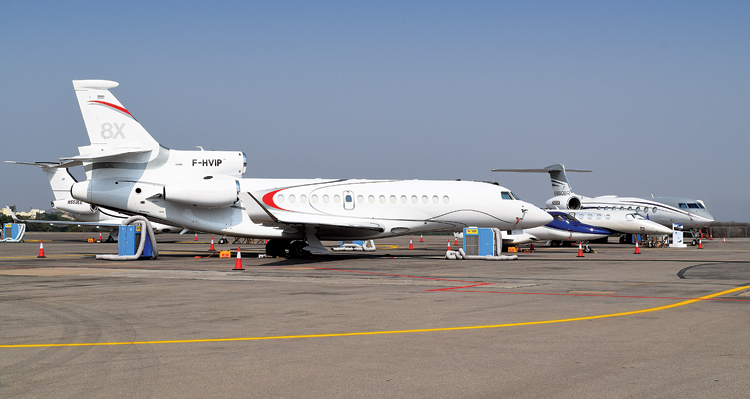INDIAN ARMED FORCES CHIEFS ON OUR RELENTLESS AND FOCUSED PUBLISHING EFFORTS

The insightful articles, inspiring narrations and analytical perspectives presented by the Editorial Team, establish an alluring connect with the reader. My compliments and best wishes to SP Guide Publications.

"Over the past 60 years, the growth of SP Guide Publications has mirrored the rising stature of Indian Navy. Its well-researched and informative magazines on Defence and Aerospace sector have served to shape an educated opinion of our military personnel, policy makers and the public alike. I wish SP's Publication team continued success, fair winds and following seas in all future endeavour!"

Since, its inception in 1964, SP Guide Publications has consistently demonstrated commitment to high-quality journalism in the aerospace and defence sectors, earning a well-deserved reputation as Asia's largest media house in this domain. I wish SP Guide Publications continued success in its pursuit of excellence.
Flight Plan for Navigating Business Aircraft Financing
The business aircraft financing market has witnessed significant growth post-pandemic, driven by increased demand for private and chartered flights

With global business aviation on the rise, financing for business aircraft has become a specialised market, catering to high-net-worth individuals, corporations, and charter services alike. In an industry shaped by luxury and high utility, financing options must be as varied and sophisticated as the jets themselves while navigating the landscape of business aircraft financing, exploring available options, risks, and resources to support informed decision-making.
The business aircraft financing market has witnessed significant growth post-pandemic, driven by increased demand for private and chartered flights. Financial institutions are adapting to this trend by offering flexible financing solutions tailored to sole ownership, fractional ownership, and charter services. Key players include global banks, private equity firms, and specialised aviation finance institutions, supported by consulting firms which provide expert guidance on structuring high-value transactions. However, the sector still faces challenges such as stringent regulatory compliance, substantial upfront costs, and complex depreciation schedules, requiring a careful balance between risk and liquidity management.
Business jet financing offers tailored solutions to meet diverse ownership and operational needs. Traditional loans from major financial institutions are a common choice, offering competitive interest rates and extended repayment terms. Leasing options, such as operating and finance leases, provide flexibility without the commitment of ownership. Fractional ownership appeals to corporate users by reducing costs through shared aircraft access while tax-advantaged financing further aids buyers by offsetting operational expenses against taxable income, often requiring expert advice from aviation tax consultants.
Some of the key factors when evaluating financing include creditworthiness, aircraft age and model, and repayment terms. Newer models with warranties are typically preferred by lenders due to higher resale values. Risk management and comprehensive insurance are essential to mitigate unique financing risks. Additionally, sustainability is influencing financing trends, with ESG factors, such as the use of sustainable aviation fuel (SAF), gaining prominence in decision-making.
KEY FOR FINANCING A BUSINESS AIRCRAFT
Financing a business aircraft requires thorough planning and strategic decision-making to balance immediate costs with longterm operational needs. Buyers should first define their travel requirements, considering factors such as frequency, destinations, and range. For instance, frequent domestic travel might justify a midsize jet, while international trips may be better suited to charter options under the “90/10 rule,” which helps balance operational expenses.
Financing options include traditional loans, requiring documentation such as tax returns and pre-purchase evaluations, with terms like interest rates and amortisation periods impacting overall affordability. Alternatively, leasing—via dry or wet leases—offers lower upfront costs and quicker delivery, especially for non-scheduled operators.

Buyers must also assess the aircraft’s compatibility with India’s regulatory ecosystem, ensuring access to maintenance facilities, spare parts, and trained personnel. Additionally, evaluating life-cycle costs, including fixed and variable expenses, is essential to understanding total ownership costs.
Engaging experts like aircraft management firms or financial institutions can streamline the process, ensuring regulatory compliance, structuring deals effectively, and facilitating due diligence. A well-structured approach can result in a cost-effective and operationally efficient acquisition.
ADVANCEMENTS IN AIRCRAFT LEASING AND FINANCING IN INDIA
India has witnessed significant milestones in aircraft leasing and financing over the past few years. Despite challenges such as the COVID-19 pandemic, the aviation sector has displayed resilience and is on a trajectory of substantial growth. With a focus on improving domestic and international connectivity, leveraging its strategic location, and catering to growing hinterland demand, India’s aviation industry is primed for expansion.
India remains a lessee-dominated market, with about 80 per cent of commercial aircraft leased from foreign lessors based in jurisdictions like Ireland and Singapore. This reliance results in substantial foreign exchange outflows through lease rentals and interest payments. However, there is a shift as Indian airlines explore aircraft ownership. Recognising this trend, the Indian government has implemented measures to foster domestic aircraft leasing and financing capabilities.
GIFT CITY: A HUB FOR AIRCRAFT LEASING AND FINANCING
Gujarat International Finance Tec-City (GIFT City) is a landmark project representing India’s ambition to become a global financial hub. Located in Gujarat, it operates as a Special Economic Zone (SEZ) and an International Financial Services Centre (IFSC), offering businesses tax incentives and a favorable regulatory environment for global financial operations. India’s maiden IFSC at GIFT City, Gujarat, has become a cornerstone of the country’s aircraft leasing ecosystem. Envisioned under the Project Rupee Raftaar report, this initiative introduces a favorable regulatory and tax regime to attract lessors and financiers.
The Gujarat International Finance Tec-City (GIFT City) represents a bold step in India’s journey to establish itself as a global financial powerhouse. Located in Gujarat, GIFT City operates as a Special Economic Zone (SEZ) and International Financial Services Centre (IFSC), designed to facilitate international financial activities. Envisioned as part of the “Project Rupee Raftaar” report, GIFT City has become a key player in India’s strategy to develop a robust ecosystem for aircraft leasing and financing, a critical step in reducing reliance on foreign lessors.
WHY AIRCRAFT LEASING FROM THE IFSC?
| Unified Regulatory Regime | Deemed Foreign Jurisdiction | Liberal Policies | Tax Benefits |
| Skilled Talent | Ease of Doing Business | State-of-the-art Infrastructure | IBC Exemption |
Source: PwC Aircraft Leasing In Gift IFSC
India’s regulatory framework has undergone significant transformations to accommodate aircraft leasing as a financial product under the IFSC Authority Regulations, 2021. This development allows entities—structured as companies, LLPs, trusts, or branches—to undertake activities like leasing aircraft, engines, and aviation training equipment. These measures are tailored to attract lessors and financiers, aligning with India’s goal of strengthening its aviation sector.
GIFT City offers substantial advantages, particularly in terms of tax benefits. Aircraft leasing units can enjoy a 100 per cent income tax exemption for 10 years within their first 15 years of operation, alongside a reduced corporate tax rate of 22 per cent post-exemption. Moreover, lessors operating in foreign currency benefit from a significantly lower Minimum Alternate Tax (MAT) of nine per cent. Non-resident lessors leasing aircraft to IFSC units are also exempt from taxes on royalty or interest income until March 2025. Indirect tax incentives include exemptions on Basic Customs Duty (BCD) for aircraft and engines imported into the SEZ, as well as a concessional five per cent IGST on lease rentals.
Beyond taxation, GIFT City offers operational benefits such as streamlined repossession and export procedures, simplified compliance for lessors, and centralised regulatory oversight by the International Financial Services Centres Authority (IFSCA). These factors collectively enhance the ease of doing business and foster a competitive environment for global players.

Entities looking to establish leasing operations in GIFT City must follow a structured process. This includes securing office space, incorporating an IFSC unit, completing tax registrations, obtaining SEZ and IFSCA approvals, and acquiring certifications like GST registration. Once operational, units can leverage the city’s ecosystem to access international markets.
However, GIFT City faces challenges in attracting global players. Established hubs like Ireland, with mature ecosystems and attractive tax treaties, remain dominant. Additionally, uncertainties regarding the continuity of India’s tax incentives and concerns over retrospective taxation pose risks for investors.
Despite these challenges, GIFT City has the potential to transform India into a competitive player in aircraft leasing and financing. Its combination of tax benefits, regulatory support, and strategic location positions it as a promising hub. Continued policy efforts, infrastructure development, and global partnerships will be vital to ensuring its sustained success in the aviation sector, contributing significantly to India’s economic growth.
GIFT City in Gujarat has emerged as a key hub for aircraft leasing and financing, offering tax incentives, streamlined regulatory processes, and a favourable environment for global lessors and financiers
Aircraft leasing units in Gujarat International Finance Tec-City (GIFT City) benefit from an array of tax and non-tax incentives that enhance its appeal as a hub for global lessors and financiers. Direct tax advantages include a 100 per cent income tax exemption for 10 years within the first 15 years of operation, a post-exemption reduced corporate tax rate of 22 per cent, and a favorable nine per cent Minimum Alternate Tax (MAT) for units operating exclusively in foreign currency. Accelerated depreciation at 40 per cent further supports cost recovery, while nonresident lessors are exempt from taxes on royalty and interest income from leases initiated by March 31, 2025. Indirect tax benefits include exemptions on Basic Customs Duty (BCD) for aircraft and engine imports into the Special Economic Zone (SEZ) and a concessional five per cent Integrated Goods and Services Tax (IGST) on lease rentals. Operational efficiencies are bolstered by streamlined repossession and export processes, the ability to keep repossessed aircraft registered in India, and the proactive governance of the International Financial Services Centres Authority (IFSCA), which reduces bureaucratic hurdles. These comprehensive incentives position GIFT City as a promising destination for global aircraft leasing, combining fiscal savings with regulatory ease to support India’s aviation ambitions.
CHALLENGES IN IMPLEMENTATION
While the advantages are significant, GIFT City faces some challenges that could impact its adoption as a global aircraft leasing hub. Established markets like Ireland, with mature infrastructures and favorable tax treaties, present stiff competition, making relocation less attractive for prominent lessors. There is also uncertainty regarding the continuation or renewal of the 10-year tax holiday beyond the initial period. Moreover, historical instances of retrospective taxation in India, though unlikely under the current framework, raise caution among potential entrants.
GIFT City’s comprehensive mix of tax benefits, operational efficiencies, and regulatory support positions it as a promising destination for aircraft leasing. However, addressing these challenges and creating a globally competitive ecosystem will be crucial to securing its position as a leader in aviation financing.
GIFT City’s unique blend of tax advantages, streamlined operations, and regulatory support positions it as a burgeoning hub for aircraft leasing and financing. However, overcoming global competition and addressing existing challenges will be key to its sustained success in this domain.
Business aircraft financing is a dynamic sector shaped by global demand, economic fluctuations, and advancing technologies. By considering factors such as financial health, tax benefits, and sustainability trends, buyers and financiers can create strategies that maximise return on investment and efficiency. Resources from institutions like Global Jet Capital, JSSI, and industry reports by NBAA (National Business Aviation Association) provide crucial guidance to navigate this specialised financial landscape.
AIRCRAFT LEASING IN GIFT IFSC
2019JULY 2019 | |
2020OCTOBER 2020 | |
2021FEBRUARY 2021
| |
2022APRIL 2022 | |
MAY 2022 | |
2023APRIL 2023 | |
OCTOBER 2023 | |
Utilisation and enhancements | |
Source: PwC Aircraft Leasing In Gift IFSC





